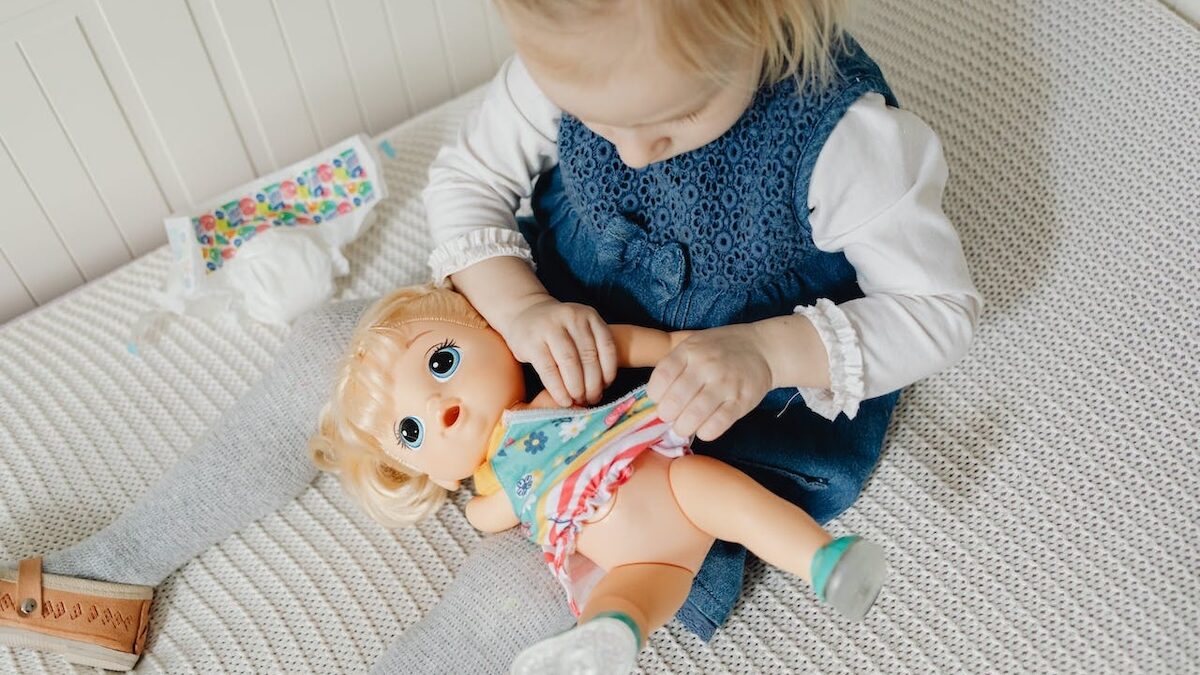Imaginative play is a fundamental aspect of childhood development that contributes significantly to cognitive, social and emotional growth.
Childhood is a time of wonder and exploration, filled with imagination and magic. Playing “pretend” with their kids is often tops the list of things parents most dislike doing, but imaginative or dramatic play is one of the most natural ways children express themselves.
This style of play is full of spontaneity, whimsy and can be slightly chaotic. Although it may not be overtly apparent to the observer, imaginative play is a fundamental aspect of childhood development that contributes significantly to cognitive, social and emotional growth.
If you want to find out how important imaginative play is to your child’s developing mind, then keep reading. We’ll also share with you practical ways to foster it.
A natural response
Imaginative play is an essential aspect of child development. Amazingly, it tends emerge almost instinctively as they navigate the world around them.
From a very young age, children will engage in make-believe scenarios, bringing to life fantastical worlds, characters and stories through their vivid imaginations. Whether it’s a pretend tea party, superhero role play or creating an entire universe with imaginary friends, children’s imaginative play is a powerful tool for understanding and interpreting their experiences.
A child’s life has a lot of components that they don’t understand and are beyond their capacity to figure out. Imaginary play is a way for them to take what is tremendously complex and boil it down to simple and easy actions.
Consider running a restaurant. It’s not possible for a child to even begin to understand how to successfully run a hospitality business. However, through pretend play they can “set up shop”, “take orders”, “mix” and “bake”, and “take payment.”
While it may seem like just a game, they are learning a variety of important components of everyday life, just in simplified versions.
Benefits of imaginative play
Imaginative play boosts cognitive development by broadening problem-solving skills and encouraging children to think creatively when coming to a crisis in the context of their imaginary scenarios.
It enhances language expansion, by the use of different vocabulary relevant to the imaginative play concept they are currently engaging in.
Social skills are also improved, as imaginative play often happens in the company of other playmates and generally involves negotiation, self-regulation techniques, active listening, collaboration and cooperation.
Physical development is another part of imaginative play and includes both gross and fine motor skills advances. Think of the hand-eye coordination it takes in the example of a little two-year-old girl who is trying to put her doll’s arms through a sleeve to put a dress on. Or a three-year-old boy, in the role of a superhero, riding his “rocket” bike around on top of “Mars”.
Creativity, a skill that a lot of people lose as they grow up, is a vital part of imaginative play and enables children to think outside the box and develop a growth mindset.
When a child creates imaginative play ideas, they are essentially building a safe space where they can express ideas, process thoughts and make sense of the world around them. Young children, especially around two to six years old, will often use dramatic play as a way to process what’s going on in their head or what they are trying to learn.
Observant parents may be able to ascertain what is bothering their child or what the child wishes to be experiencing more of in real life, by noticing any reoccurring themes in their make-believe play.
How to foster imaginative play in your child
The best way to promote imaginative play is to create an environment that facilitates it. Provide open-ended toys that encourage creativity, such as:
- building blocks
- stuffed animals
- art supplies
- dress-up clothes
- play cooking sets
Children also need to have time to engage in active play, rather than just sitting on a couch watching TV or playing video games.
If you want to promote creativity and imagination for your child’s development, then manage their screen time. Give them opportunities for imaginative play and face-to-face interactions with their family members and peers.
Have a designated space for them to engage in their play activities, whether it’s the backyard, their bedroom, the living room floor or the garage. It’s important that kids feel safe to allow their creative ideas to start firing.
An exceptional way to promote your child’s imagination is to participate in it. Join in with their games, taking the opportunity to actively teach skills and knowledge in fun ways. Children will feel valued that you have taken the time to enter their world and it will be a bonding experience for both of you.
By encouraging and celebrating imaginative child’s play, you will reinforce their confidence and help them to continue their learning. You might also be able to reignite your creative side.
Imaginative play activities
Here are some simple activities you can use to encourage imaginative play.
Storytelling sessions:
- Bedtime stories: Engage in regular bedtime storytelling sessions. Encourage children to create their own stories and share them with the family.
Role-playing games:
- Dress-up play: Provide a variety of costumes and props for dress-up play. This allows children to explore different roles and characters.
Building and construction:
- Building forts: Encourage children to build forts using blankets, pillows and other household items. This activity stimulates creativity and teamwork.
Artistic expression:
- Craft time: Set aside time for arts and crafts, providing materials for drawing, painting and other creative endeavours.
Outdoor adventures:
- Nature Exploration: Take children on nature walks or outdoor adventures, sparking their imagination as they interact with the natural world.
Praise and celebrate:
- Boasting and exhibition: If relevant, use items that your child has created in their imaginative play and show them off. Tell family members and friends, while the child is in your presence, so they can see you’re thoroughly impressed by their creative work.
For all children everywhere
Imaginative play is not just a whimsical pastime for children; it is an indispensable component of their overall development. From enhancing cognitive and social skills to fostering emotional intelligence, the benefits of imaginative play are immeasurable.
It is the responsibility and privilege of caregivers and educators to recognise the importance of imaginative play and to cherish its magic as an essential building block of children’s growth and success.

How helpful was this article?
Click on a star to rate it!
0 / 5. 0
Be the first to rate this post!
Adriana Wales
Related posts
Subscribe
Receive personalised articles from experts and wellness inspiration weekly!

